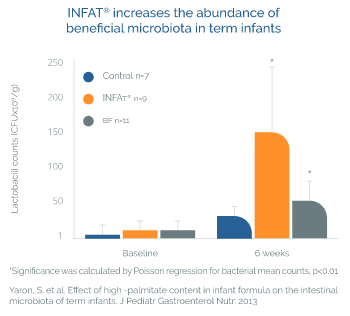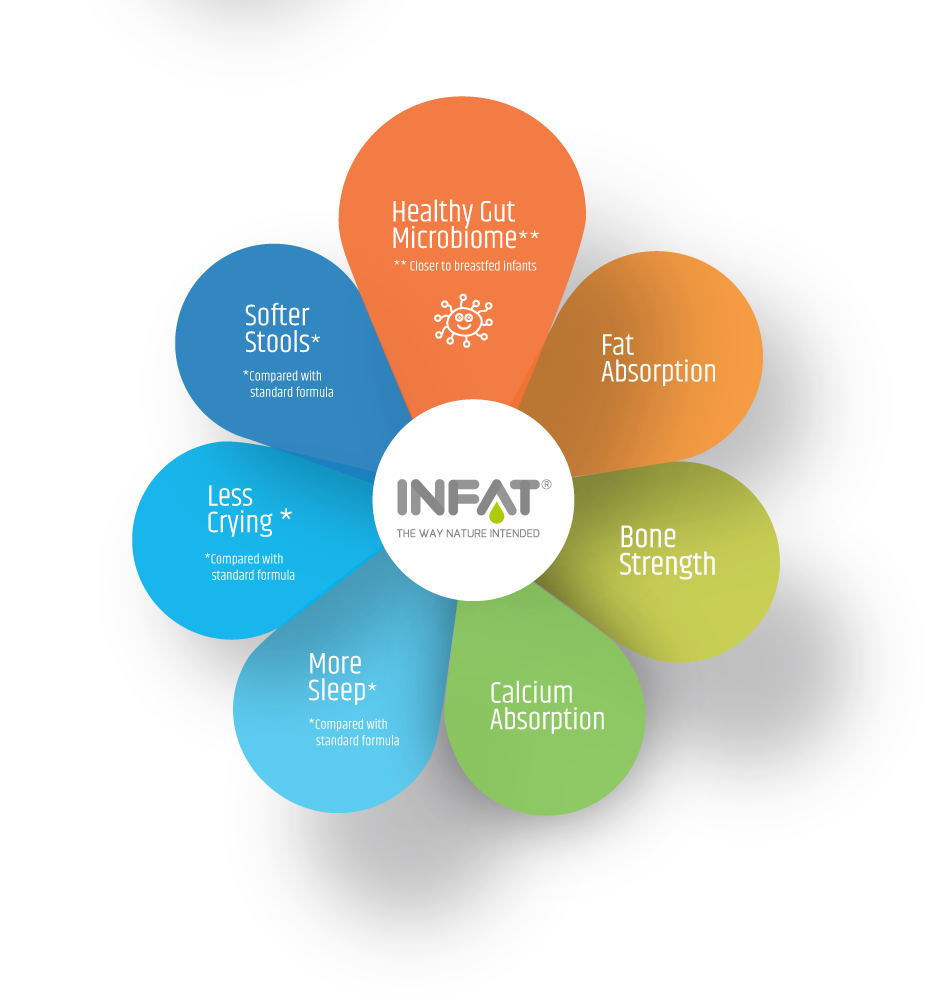Healthy Gut Bacteria
INFAT® has a positive effect on the intestinal
microbiota during the first weeks of life
The importance of gut microbiota
The intestinal microbiota, also known as the gut microbiota, is an essential organ that serves numerous important functions, including a continuous and dynamic effect on the immune system. Gut colonization begins after birth in a critical process that is heavily influenced by the newborn's nutrition. It is believed that human milk is an important factor in the initiation, development of the gut microbiota.
Human milk provides a source of microorganisms such as lactic acid bacteria and bifidobacteria that are considered to be beneficial for human health.

INFAT® has a special fat structure, close to that of human milk
Human milk is the optimal choice for infants, but when breastfeeding is not practical, the closest substitute is important for an infant's comfort, health and development. In human breast milk and in most infant formulas, the fat, primarily triglycerides, provides about 50% of the calories that are needed for healthy growth. Triglycerides in human milk are special as the fatty acids are attached to the glycerol backbone in a unique order which cannot be found in other types of oils. One major fatty acid in human milk, named palmitic acid, is mainly (70-75% of it) located at the sn2 position. This typical structure called sn2 palmitate, is responsible for some of the superiority of human milk. INFAT® is a sn2 palmitate fat ingredient which structure and benefits are closer to that found in human milk fat.
INFAT® containing infant formula increases levels of healthy gut bacteria
A double blind, randomized controlled study on 36 term infants demonstrated that feeding with INFAT® containing infant formula for the first 6 weeks of life beneficially affected infant gut microbiota. The numbers of lactobacilli counts in fecal stools were higher as compared to a control formula. This clinical study suggests that INFAT® may affect the intestinal microbiota during the first weeks of life.
Colonization of the gut with lactobacilli and bifidobacteria is considered to promote good health, growth, and ability to fight off infections.
** Closer to breastfed infants

